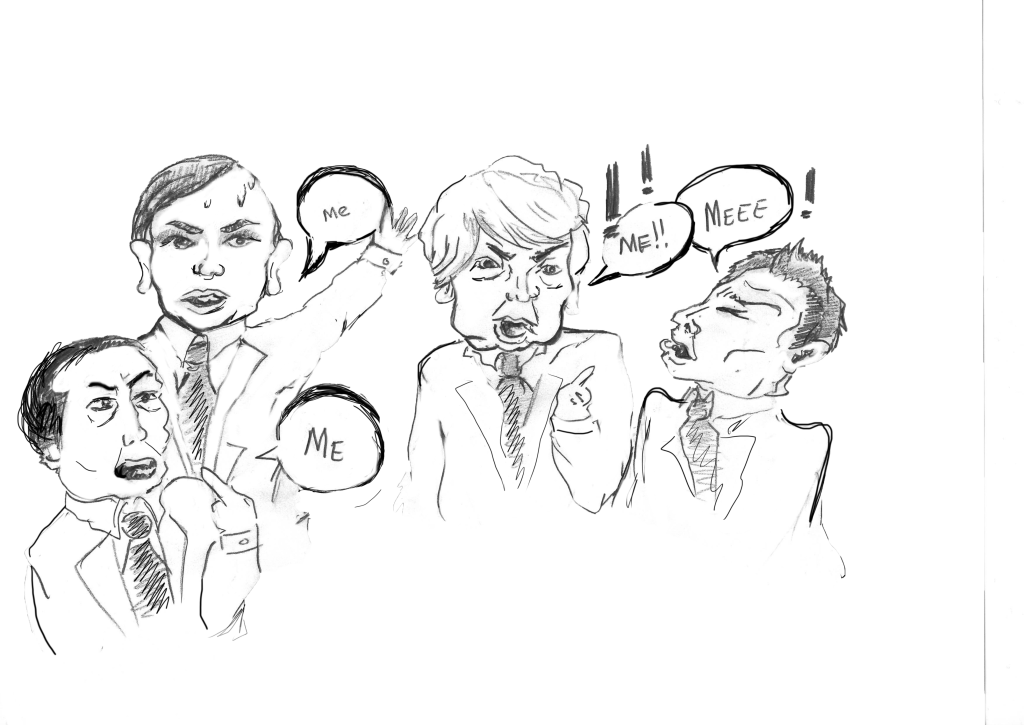CONNOR HOFFMAN
Assistant News Editor
It seems lately that the talk about the Republican National Convention has focused on having what’s called a “contested convention” rather than having a convention that, effectively, was a coronation for Donald Trump.
A contested convention is what happens when none of the nominees are able to win a majority of the delegates.
The idea of having a contested Republican convention really picked up steam after the Republican nominee of the last election cycle, Mitt Romney, gave a speech at the University of Utah on March 3 outlining how Republicans could deny Trump a majority of the delegates by dividing them up.
“Given the current delegate selection process, this means that I would vote for Marco Rubio in Florida, for John Kasich in Ohio, and for Ted Cruz or whichever one of the other two contenders has the best chance of beating Mr. Trump in a given state,” said Romney.
In order to win the nomination, a candidate must be able to obtain 1,237 delegates, according to Politico. At the time of writing, Trump had 459 delegates, Sen. Ted Cruz has 360, Sen. Marco Rubio has 152 and Governor John Kasich has 54, according to Real Clear Politics.
The delegates will all go to Cleveland come July and cast votes for the Republican nominee according to who won their state’s primaries.
The delegates will then vote on what’s called the “first ballot,” and a nominee must be able to achieve 1,237 votes on the first ballot to win the nomination. If a candidate is not able to get the necessary amount of delegates, that’s when it would become a contested convention. Also, what’s interesting to note is there are about 168 unpledged delegates that can vote whatever way they please, according to TIME.
The second ballot is where it could be quite controversial and interesting. After the first ballot, most delegates are no longer bound to support the candidate that won their primary. After the third ballot, all delegates are unbound, according to the Christian Science Monitor.
The third ballot is where almost anything is fair game. The delegates could choose to even nominate a candidate that didn’t run in the primary, such as Mitt Romney or Paul Ryan, according to the Christian Science Monitor.
What would happen after the third ballot is that a majority of the delegates would have to somehow agree on a candidate. This will lead to much backroom dealing to see who can persuade a majority of the delegates to vote on them.
One could try to convince onself that the delegates will listen to the voters and just pick Trump, but that might be unlikely due to the way some of the delegates are picked. The Republican establishment does not want Trump to win, and they have quite a lot of influence in choosing the delegates.
In caucus states, the delegates are selected through multiple level of voting at multiple conventions, starting at the precinct level and going all the way up to the state level, according to TIME.
In some primary states, the parties have a lot of influence in the delegate selection process, and some primary states elect the delegates that are listed on the ballot with who they support.
Some argue that having a contested convention will guarantee the Democrats a victory in November and would lead to the destruction of the Republican party.
Personally, I think that the party should have a contested primary if Trump continues to win the primaries, even if it would be controversial. Many are arguing that if there is a contested convention, this would effectively be throwing away the votes, but what they fail to mention is that two-thirds of Republicans do not support Trump.
The only reason Trump has been able to win is because of how divided the Republican field is, and I think a contested convention would ensure that the Republican party is able to nominate a true conservative and not a racist, bumbling idiot.
The Republicans will be absolutely crushed in the general election come November if we decide to nominate Trump, the man that more than half of America hates. I think that nominating Trump would also be a death sentence to the party, which would result in Republicans losing Congress as well.
I think the worst part of all is imagining a President Hillary Clinton. Just thinking about that being a reality makes my skin crawl.

